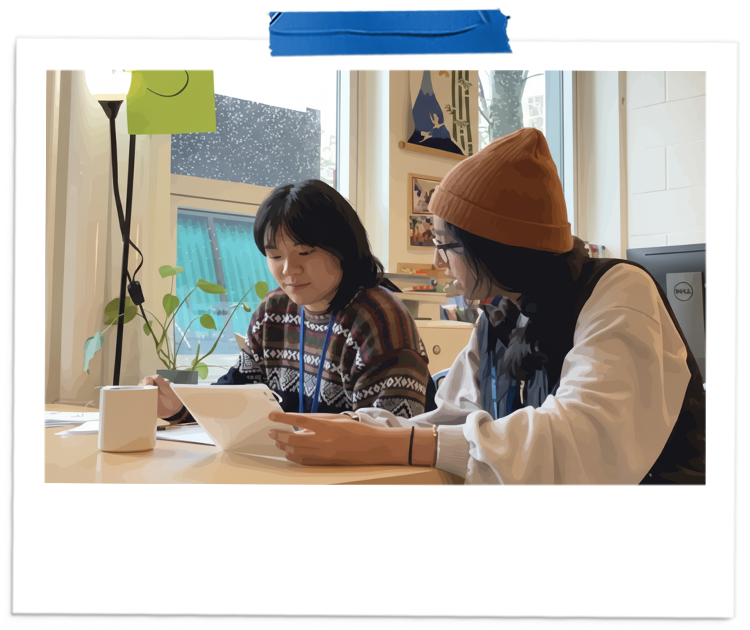
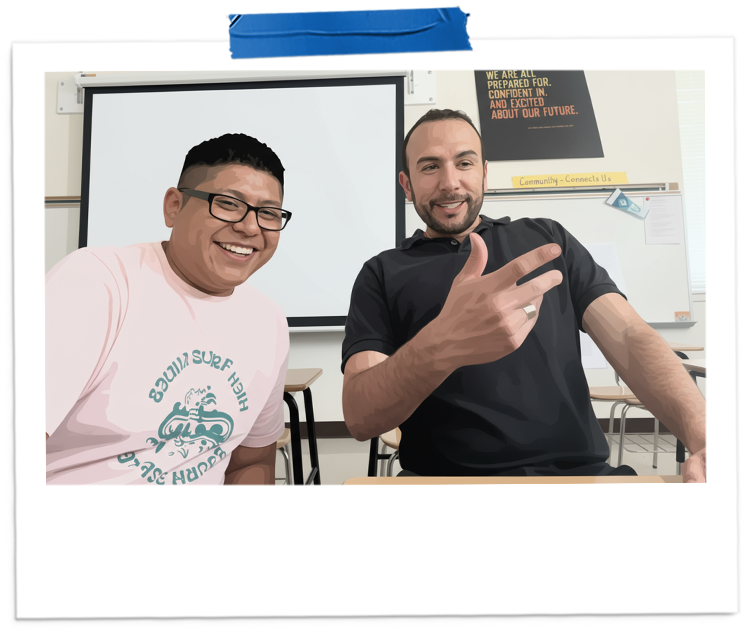
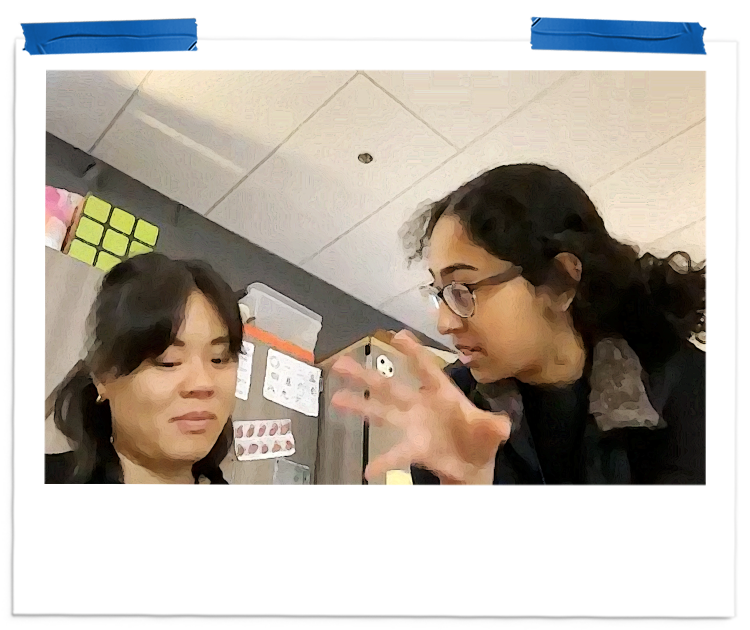
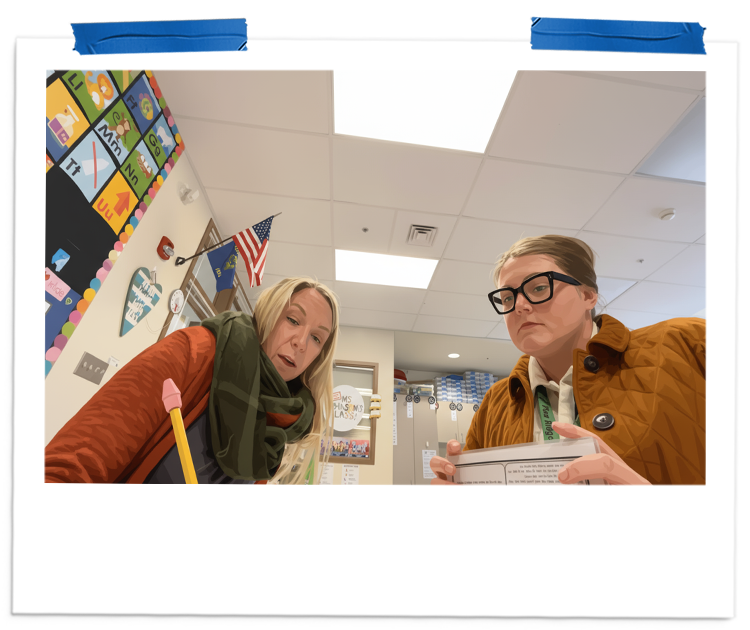
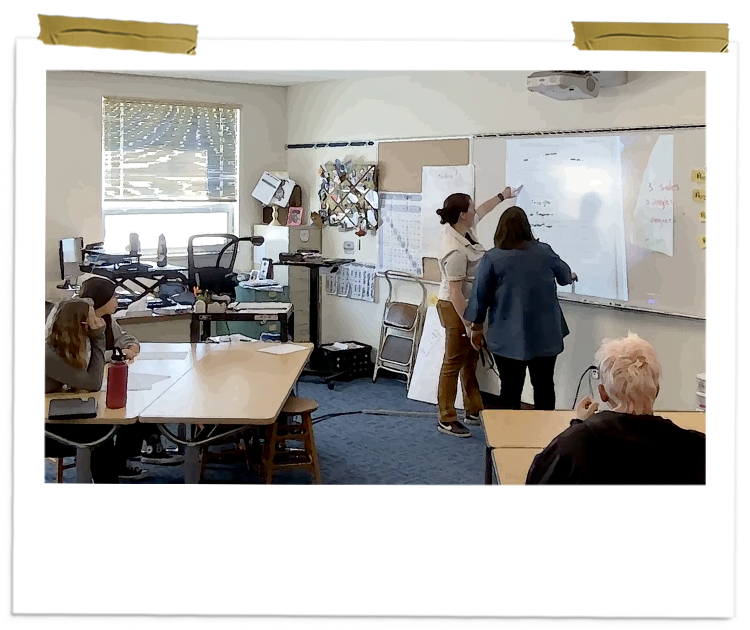
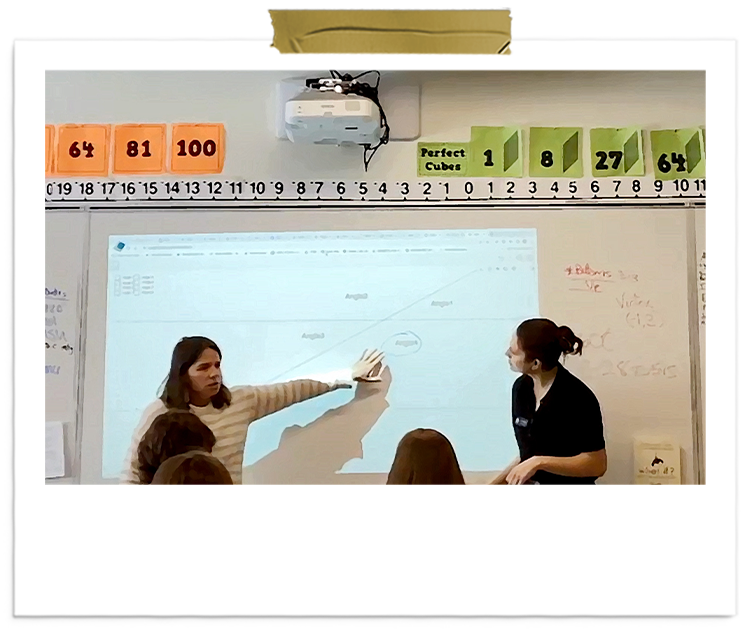
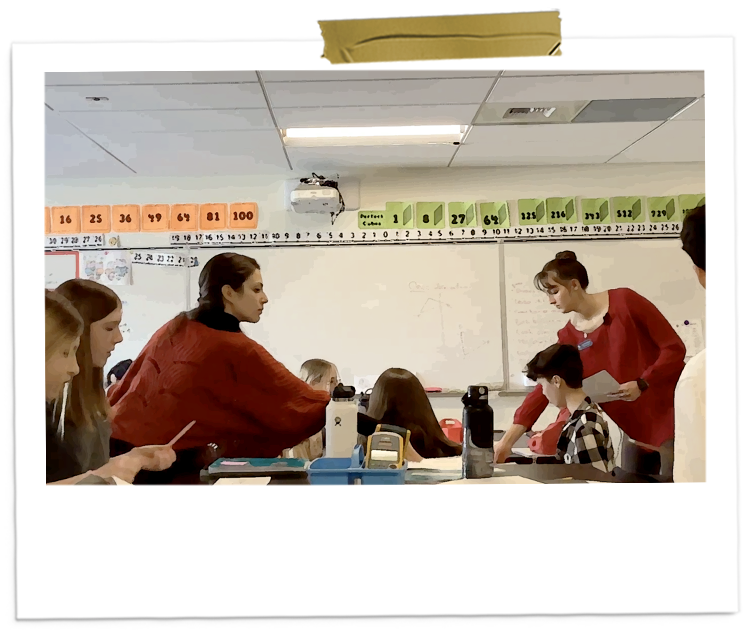
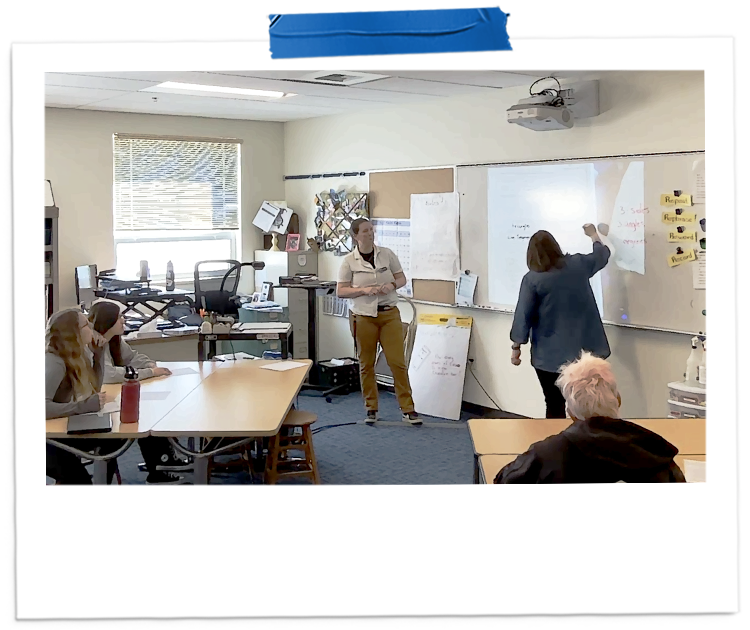
How do teacher candidates and mentor teachers co-learn equity-oriented instruction?
In what ways do "co-learning" tools and their specific design characteristic(s), support and/or inhibit teacher candidates and mentor teachers in co-learning?
Learn more about our CLS Development and Theory of Co-Learning Equity-Oriented Mathematics Instruction below.
Our project focuses on designing and understanding tools which support mentor teachers and teacher candidates to engage in co-learning equity-oriented mathematics instruction in the clinical experience through opportunities to engage in asset-focused noticing during instruction.
Over the course of five years our team has designed and studied two co-learning tools. Our process included piloting our co-learning tools in six teacher education programs across the United States and revising the tools to better support teachers in co-learning equity-oriented mathematics instruction. The resulting tools create different opportunities for teachers to engage in co-learning together and can be characterized by the following key features: asset-focused, responsive and collaborative.
Asset-Focused
Asset-Focused: Our tools are designed to activate and develop teachers’ attention towards the assets of students who are often marginalized in their mathematics classrooms. The tools invite teachers to notice, draw on and highlight their students’ mathematical competence, strengths, and experiences, as well as question their own biases and assumptions.
Responsive
Responsive: Our tools are designed to prompt teacher candidates and mentor teachers to engage with one another not only before and after teaching but also during instruction. These interactions create new opportunities for teachers to practice and reflect on the complex work of responding in the moment as they notice, elicit, and center students’ assets.
Collaborative
Collaborative: Our tools are designed to generate shared inquiry and create opportunities for teacher candidate and mentor teacher learning. The tools offer structures intended to shift the dynamic from cycles of observation and critique of teacher candidate teaching towards mutual exploration into equity-oriented instruction wherein each teacher has valuable perspectives to offer and the work of learning and refining teaching practice is shared.
Click on each person below to learn more about their work in math education and on this project.
Montana State University
Portland State University
Portland State University
University of Maryland
Teachers Development Group
University of Washington
Oregon State University-Cascades
Portland State University
University of Washington
Teachers Development Group
Our Design Cycle
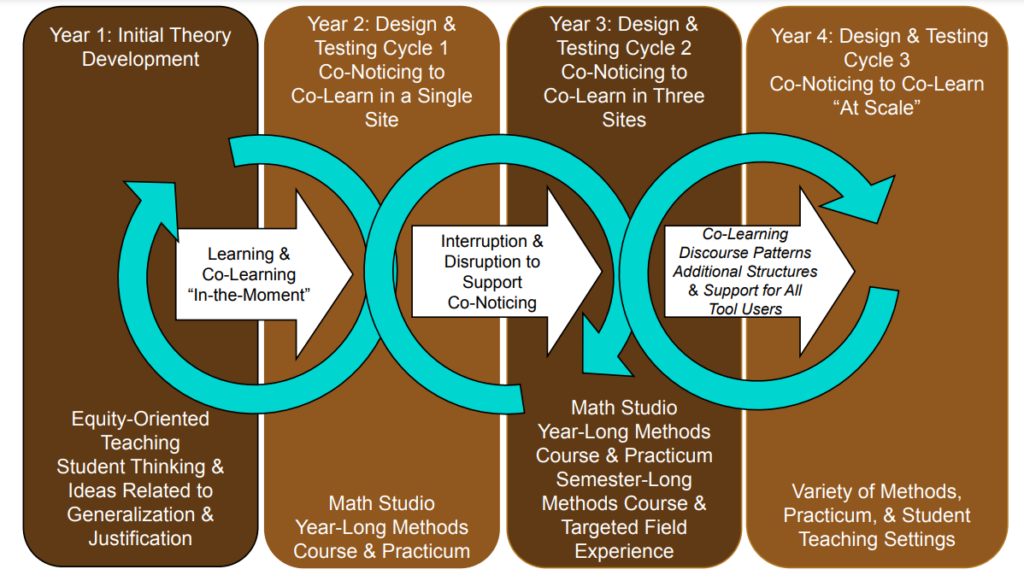

Please explore our site to learn about our protocols and think about how you might use them in your own work as a teacher candidate, mentor teacher, or teacher educator!

This material is based upon work supported by the National Science Foundation under Grant No. 2010634. Any opinions, findings, and conclusions or recommendations expressed in this material are those of the author(s) and do not necessarily reflect the views of the National Science Foundation.
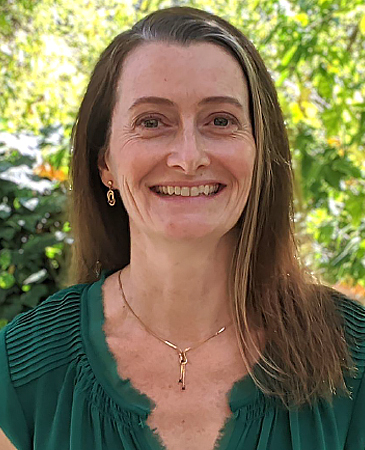
Heather Fink
Postdoctoral Researcher
Portland State University
hfink@pdx.edu
Heather Fink, PhD, is a mathematics teacher educator and researcher in the Portland, Oregon area. She is currently a postdoctoral scholar at Portland State University and adjunct faculty at Lewis & Clark College.
Her research focuses on understanding how inequities related to unfair power distributions are constructed through interactions and how, at micro-levels, interactions shape the opportunities students (and teachers) have to participate and learn.
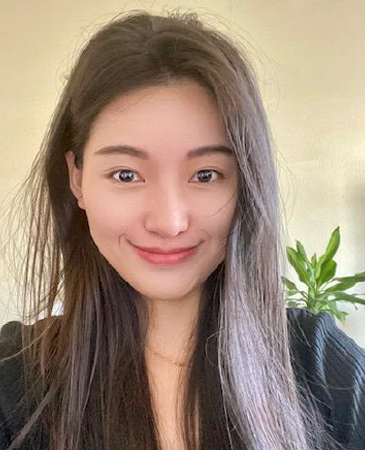
Maddi Gao
MS - Mathematics
Portland State University
manqgao@pdx.edu
Manqing (Maddi) Gao is a Ph.D. student in Mathematics Education at Portland State University, whose research examines how K–12 mathematics teachers and preservice teachers develop their understanding of mathematical content and of students’ thinking.
Her work explores how teachers notice and interpret students’ reasoning, and how math teachers develop professionally through reflection and collaboration. Her research aims to understand how teachers can leverage students’ mathematical strengths and cultural assets to create inclusive and empowering learning environments.
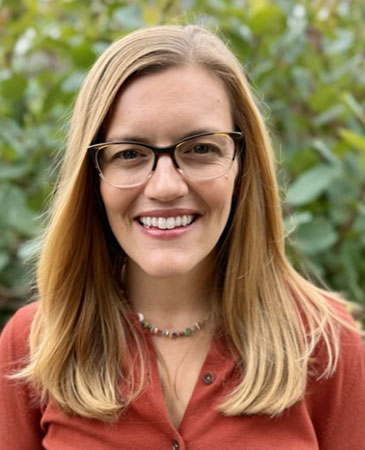
Taylor Stafford
University of Washington
Teachers Development Group
taylores@uw.edu
Taylor Stafford, PhD, is a mathematics teacher educator and researcher in the Seattle area. She works with teacher candidates and in-service teachers through the University of Washington and the Teachers Development Group.
Taylor’s research explores how mathematics teachers learn through and from teaching and professional collaboration, with a particular focus on the moral and ethical dimensions of learning equity-oriented and responsive instruction.
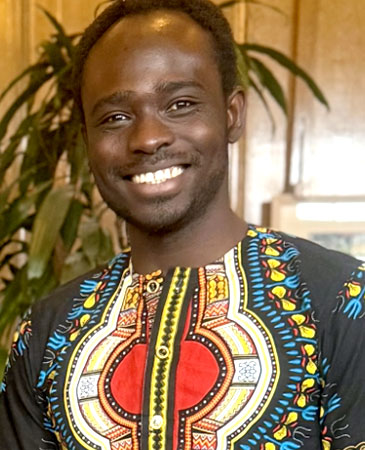
Nana Mensah is a PhD student in Mathematics, specializing in Mathematics Education, at Montana State University, and serves as a research assistant on the co-learning project.
His research interests include how preservice teachers approach volume measurement tasks, as well as broader topics like teacher knowledge, professional development, and equitable practices in the teaching and learning of mathematics.